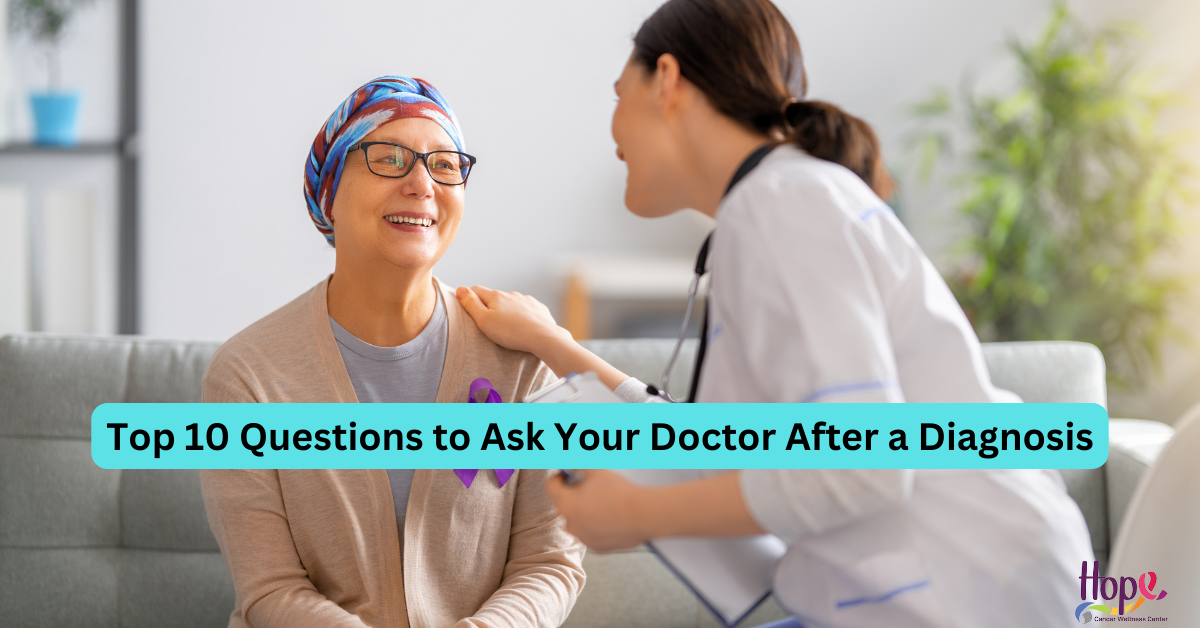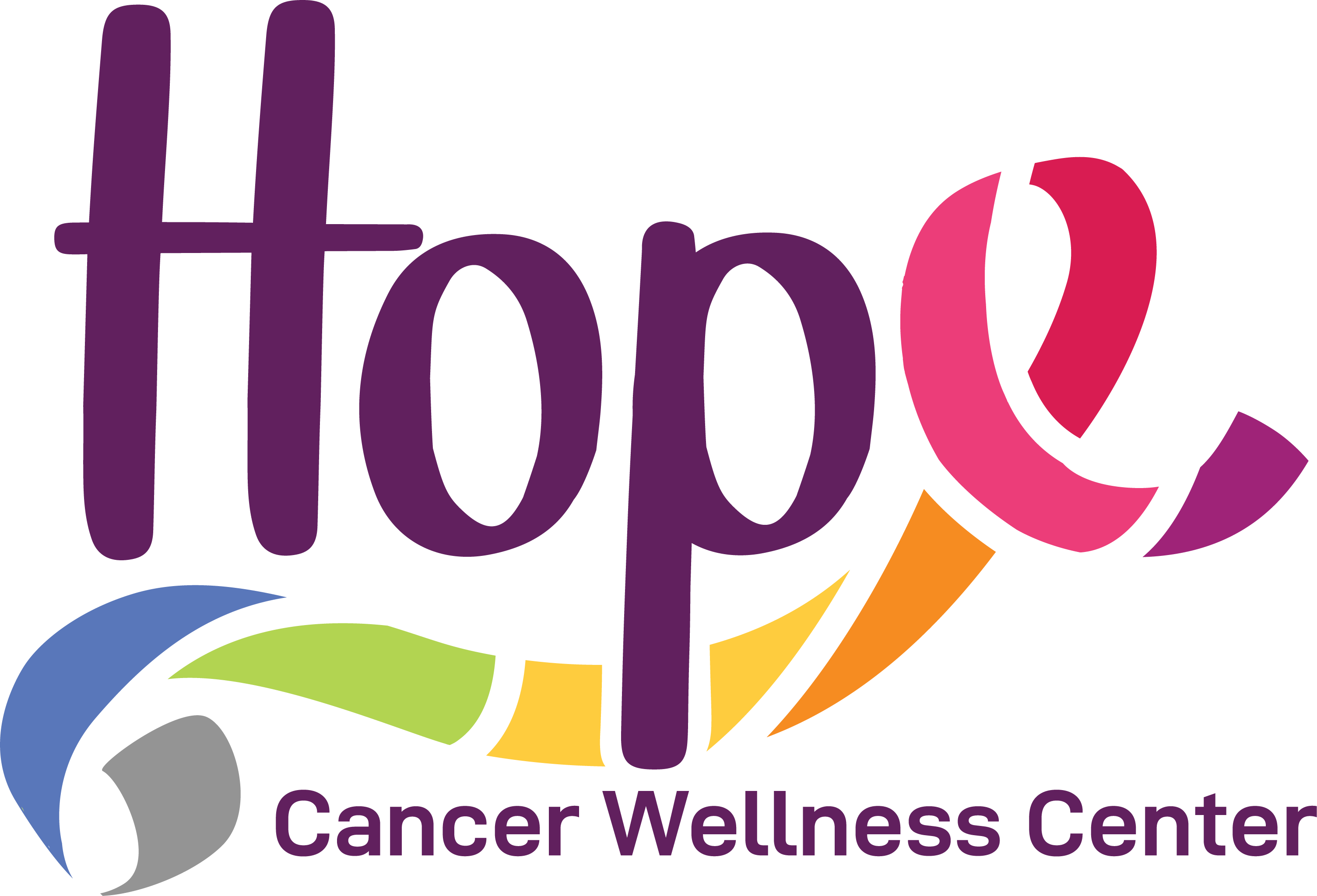
Ten Questions You Should Ask After a Cancer Diagnosis
Hearing the words “you have cancer” can feel like the ground has been pulled out from under you. Suddenly, you’re facing a flood of medical terms, decisions, appointments—and emotions. It’s normal to feel overwhelmed, scared, or even frozen. One of the best ways to take back a little control? Start asking questions.
Asking the right questions can help you understand your diagnosis, treatment options, and available support systems. It also reminds you that you’re not powerless—you’re a partner in your own care.
At Hope Cancer Wellness Center, we believe in empowering you from day one. Here are ten important questions you should ask after a cancer diagnosis, to help you feel a little more grounded, informed, and cared for.
1. What kind of cancer do I have?
Sounds basic, but knowing the specific type and subtype of cancer you have is essential. It helps determine your treatment options and gives you a clearer picture of what’s ahead. Ask for the name in writing so you can do further research (or bring it to us—we’ll walk you through it together).
2. Where is the cancer located—and has it spread?
This is known as the stage and grade of your cancer. Understanding whether it’s localized or has spread (metastasized) will influence treatment options and urgency. Ask your provider to explain what your test results mean and how the stage was determined.
3. What are my treatment options?
There is rarely just one option. From chemotherapy and radiation to surgery, immunotherapy, and holistic approaches—your care plan can (and should) be individualized. Make sure to ask:
- What’s the goal of treatment?
- What are the pros and cons of each option?
- Are there any clinical trials I should consider?
4. What side effects should I expect?
All treatments have side effects, but they vary widely. Ask what you might experience short- and long-term—physically, emotionally, and even cognitively. Knowing ahead of time helps you prepare and plan for additional support.
5. How will treatment affect my daily life?
Will you be able to work? Drive? Take care of your family? Travel? These questions matter. Cancer treatment doesn’t happen in a vacuum, and it’s okay to advocate for a plan that fits your real life.
6. Who will be part of my care team?
Cancer care often involves a whole team—oncologists, surgeons, nurses, social workers, and wellness providers. Ask who you’ll be working with, who to contact with questions, and whether there’s someone helping coordinate everything (a nurse navigator or case manager, for example).
7. Are there supportive services available to help me cope?
YES—and they’re powerful. Emotional wellness, financial navigation, transportation help, nutrition guidance, counseling, and survivorship programs can make all the difference.
At Hope Cancer Wellness Center, we offer free support programs for patients, survivors, and their families—from yoga and nutrition classes to art therapy and mental health counseling. We believe whole-person healing matters just as much as medical care.
8. How can I take care of my emotional and mental health during this time?
This is not just a “nice to have.” Mental and emotional health are deeply impacted by a cancer diagnosis—and they’re vital to your overall well-being and treatment outcomes. Ask about resources like support groups, therapy, and stress-relief practices. (Spoiler alert: we have all three!)
9. Should I get a second opinion?
Getting a second opinion is common and does not offend your doctor. It can provide peace of mind or offer new perspectives. If your provider resists or discourages it, consider that a red flag. You deserve confidence in your care plan.
You can also check out this helpful second opinion guide from John Hopkins if you’re not sure where to start.
10. How can my loved ones support me—and how do I talk to them about this?
People often want to help but don’t know how. Ask your provider or support team for guidance on how to communicate with loved ones, and whether there are resources specifically for caregivers. (We also welcome families into our programs at Hope—they need support, too.)
Bottom Line: You Deserve Answers, Support, and Hope
A cancer diagnosis isn’t just a medical event—it’s a life event. It impacts your emotions, your relationships, your sense of control, and your vision of the future. That’s why we’re here. Be sure to take this this list of the top Ten Questions You Should Ask After a Cancer Diagnosis, to your next appointment.
At Hope Cancer Wellness Center, we walk with you—not just through treatment, but through everything that comes with it. Whether you’re seeking information, emotional support, or simply a safe space to breathe, we’re just a phone call away.
Your questions matter. Your story matters. And we’re here to help you write the next chapter with courage, clarity, and care.
